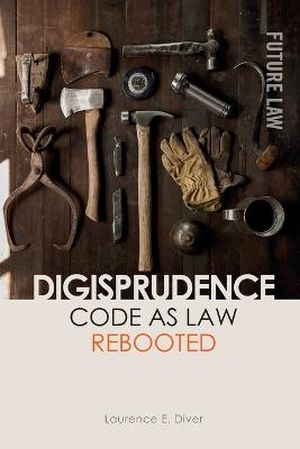
Reboots the debate on ‘code as law’ to present a new cross-disciplinary direction that sheds light on the fundamental issue of software legitimacy.
Laurence Diver combines insight from legal theory, philosophy of technology and programming practice to develop a new theoretical and practical approach to the design of legitimate software. The book critically engages with the rule(s) of code, arguing that, like laws, these should exhibit certain formal characteristics if they are to be acceptable in a democracy. The resulting digisprudential affordances translate ideas of legitimacy from legal philosophy into the world of code design, to be realised through the ‘constitutional’ role played by programming languages, integrated development environments (IDEs), and agile development practice. The text interweaves theory and practice throughout, including many insights into real-world technologies, as well as case studies on blockchain applications and the Internet of Things (IoT).